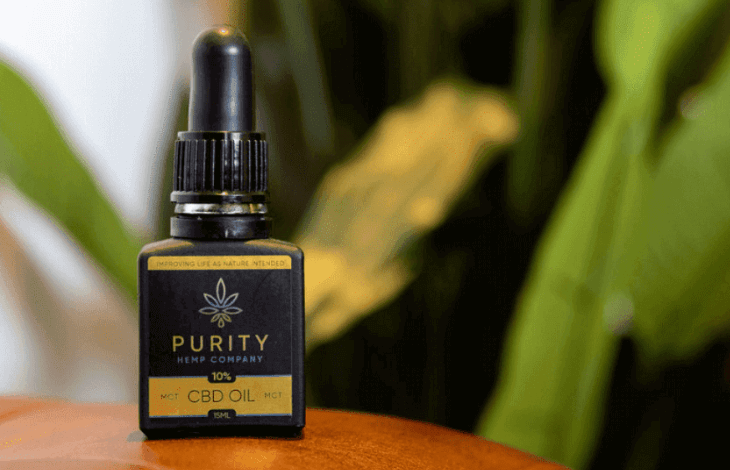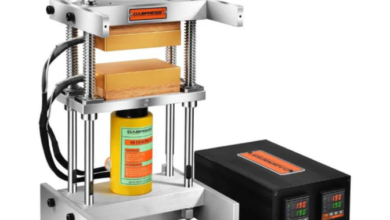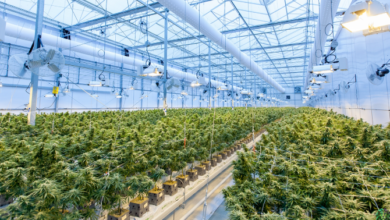How Long Does Cbd Oil Last After Expiration Date

The shelf life of CBD oil is generally estimated to be between 12 to 24 months, yet many consumers remain uncertain about its viability after the expiration date. While expired CBD oil may not pose significant health risks, the degradation of its potency and efficacy raises important questions. Factors such as storage conditions, product formulation, and extraction methods can influence this timeline. Understanding these variables is essential for making informed decisions about usage, but what specific indicators should one look for to gauge its quality post-expiration?
Understanding CBD Oil Expiration
Understanding the expiration of CBD oil is crucial for ensuring both its safety and efficacy, as various factors can influence its shelf life and potency over time.
Key CBD oil ingredients, such as cannabinoids and terpenes, may degrade past the expiration date, leading to diminished effects.
Being aware of expiration date effects is essential for consumers seeking optimal benefits and maintaining their health autonomy.
See also: How to Flush Cbd Out of Your System
Factors Affecting Shelf Life
Several factors can significantly impact the shelf life of CBD oil, influencing both its potency and safety after the expiration date.
Key elements include product formulation, which determines stability, and storage conditions, such as light exposure and temperature.
Additionally, the presence of preservatives or carrier oils can enhance longevity, while the quality of raw materials also plays a crucial role in maintaining efficacy.
Typical Shelf Life of CBD Oil
The typical shelf life of CBD oil generally ranges from 12 to 24 months, depending on various factors such as formulation and storage conditions.
Different CBD oil types, including full-spectrum, broad-spectrum, and isolate, can influence cannabinoid potency over time.
Proper storage in a cool, dark place can help maintain the oil’s quality, ensuring optimal effectiveness throughout its intended lifespan.
Signs of Expired CBD Oil
Recognizing the signs of expired CBD oil is essential for ensuring safety and efficacy, as degraded products can lead to diminished therapeutic effects and potential adverse reactions.
A thorough visual inspection may reveal changes in color or consistency, indicating spoilage.
Additionally, odor changes—such as a rancid or off-putting smell—are key indicators that the oil is no longer safe for use.
Testing Viability of CBD Oil
Evaluating the viability of CBD oil involves assessing its chemical stability and potential therapeutic effectiveness, particularly after the expiration date or when signs of degradation are present.
CBD oil testing can determine CBD oil potency, ensuring it meets consumer expectations.
Regular testing is essential for maintaining quality, allowing users to make informed decisions about the efficacy and safety of their CBD oil products.
Safe Consumption After Expiration
Consuming CBD oil after its expiration date raises concerns about both safety and efficacy, as the degradation of compounds may lead to diminished therapeutic effects and potential health risks.
While expiration myths suggest that all products are unsafe post-date, evidence indicates that safe usage may be possible for a short time, depending on storage conditions and product composition.
Always prioritize health and consult professionals when in doubt.
Storage Tips for CBD Oil
Proper storage of CBD oil can significantly extend its shelf life and maintain its potency, making it important to follow best practices even if the product is approaching its expiration date.
Use proper containers, such as dark glass bottles, to protect against light exposure.
Additionally, store the oil in optimal temperatures, ideally between 60°F to 70°F, to prevent degradation and preserve its quality.
Impact of Extraction Methods
The extraction method used for CBD oil significantly influences both the quality and longevity of the final product.
Different processes, such as CO2 extraction and solvent-based methods, can yield varying concentrations of cannabinoids and terpenes, impacting the oil’s effectiveness and shelf life.
Understanding these variations is crucial for consumers seeking optimal quality and longevity in their CBD oil products.
Extraction Process Variations
Various extraction methods employed in the production of CBD oil can significantly influence the compound’s stability, potency, and overall shelf life.
Techniques such as CO2 extraction preserve more cannabinoids and terpenes, reducing potency variations.
Conversely, less effective methods may compromise the oil’s quality, leading to quicker degradation and diminished therapeutic effects.
This ultimately impacts the consumer’s experience and overall satisfaction with the product.
Quality Retention Factors
Extraction methods directly influence the retention of quality in CBD oil, affecting both the stability and longevity of its beneficial compounds.
Techniques such as CO2 extraction enhance cannabinoid stability and promote terpene preservation, ensuring a more potent product.
Conversely, less sophisticated methods may compromise these elements, leading to a decrease in efficacy and shelf life, ultimately impacting user experience and satisfaction.
Comparing CBD Oil Products
When evaluating CBD oil products, it is essential to consider factors such as sourcing, formulation, and cannabinoid profile, as these elements significantly influence both efficacy and shelf life.
A thorough CBD product comparison reveals notable potency differences that can affect user experience.
Understanding these variances empowers consumers to select products that best meet their individual needs and preferences for optimal results.
When to Discard CBD Oil
Determining when to discard CBD oil is essential for ensuring safety and efficacy.
Key indicators of expired oil include changes in color, odor, or texture, which can signify degradation.
Additionally, proper storage conditions significantly influence the oil’s longevity and should be considered to maintain product quality.
Signs of Expired Oil
Recognizing the signs of expired CBD oil is essential to ensure both safety and efficacy, as compromised oil may exhibit distinct changes in appearance, smell, and taste.
Key expired oil characteristics include a noticeable CBD oil discoloration, such as darkening or cloudiness.
Additionally, an off or rancid odor and an unpleasant taste signal that the oil should be discarded to avoid potential health risks.
Storage Impact on Longevity
Proper storage of CBD oil significantly influences its shelf life and overall effectiveness, highlighting the importance of maintaining optimal conditions to prolong its usability beyond the expiration date.
Temperature sensitivity and light exposure are critical factors; storing CBD oil in a cool, dark place can prevent degradation.
Discard CBD oil if it shows signs of rancidity, unusual color, or altered consistency.
Conclusion
In essence, the longevity of CBD oil post-expiration is akin to the fading notes of a once-vibrant melody.
While the oil may not be hazardous immediately after its expiration date, its therapeutic efficacy can significantly diminish.
Regular inspections and adherence to proper storage practices are essential for maintaining the oil’s quality.
Ultimately, when in doubt, consulting a health professional remains the most prudent approach to evaluating the viability of CBD oil, ensuring optimal health benefits.




